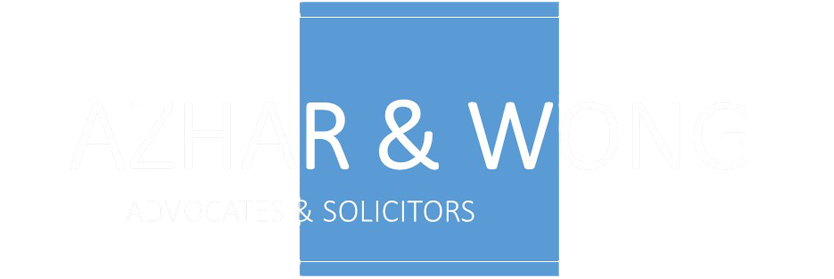
Indefeasibility & Duty of Purchasers after Setiakon Engineering Sdn Bhd
Indefeasibility of Title is a legal principle that ensures a registered title or interest is protected from prior unregistered claims or encumbrances. Defined by Abdul Malik Ishak J in Muthammah A/P Govindan v Masri Bin Mohamed & Anor [2000] 5 MLJ 518, it means a registered title or interest is typically immune to adverse claims not recorded in the register, but this principle is not absolute because under certain circumstances a registered title or interest may be set aside or defeated.
Under Malaysia’s National Land Code (NLC), Section 340(1) of the NLC confers an indefeasible title or interest in land upon registration, subject to the exceptions set out in s 340(2) where a title or interest is not indefeasible in cases involving fraud, forgery, or unlawful acquisition.
There are two types of indefeasibility:
- Deferred Indefeasibility: A person who had acquired his title by means of any of the vitiating elements set out in s 340(2) does not acquire an indefeasible title. The indefeasibility is postponed until the time when a subsequent purchaser acquires the title in good faith and for valuable consideration (proviso to s340(3)).
- Immediate Indefeasibility: A person who had acquired his title by means of any of the vitiating elements set out in s 340(2) does acquire an immediate indefeasible title, provided that he acquired the title in good faith and for valuable consideration (proviso to s340(3)).
Following the decision of the Federal Court in Tan Ying Hong v. Tan Siang San & Ors [2010] 2 CLJ 269, the law is now settled that deferred indefeasibility applies in Malaysia.
Takeaways from the Setiakon Engineering Sdn Bhd v Mak Yan Tai & Anor [2024] MLJU 1852.
This is a case where the land was registered in Wong Soo’s name as security for a loan to Lim Moy which, on the balance of probabilities, given the documentary evidence before the Court, might well have been repaid in full.
On 4 August 2014, an application to Court (“OS”) was made by Lim Moy through her attorney, for a declaration that Lim Moy was the rightful owner of the land and consequently, the re-transfer of the land from Wong Soo to Lim Moy. This application was served on Wong Soo at the address stipulated in her National Registration Identity Card records. Wong Soo did not put in an appearance; hence, the High Court having perused the papers had allowed the application which had the effect of ordering the transfer of the land to Lim Moy through her lawful attorney, Chia King Moy (‘attorney’). The order was handed down on 30 September 2014 (JID).
In October 2014, Lim Moy’s attorney sold the land to Paragon Capacity Sdn Bhd (“Paragon”) and it was registered in the name of Paragon. Paragon then sold the land to Setiakon Engineering Sdn Bhd (“Setiakon”) in May 2015 and the land was subsequently registered in Setiakon’s name. It must be noted that before purchasing, Setiakon had conducted a land search, which revealed no encumbrances or issues, confirming Paragon as the legal owner of the land.
In July 2017, Wong Soo sought to have a Judgment in Default set aside. Wong Soo claimed the judgment had not been properly served and disputed the existence of the loan agreement. It was also argued that the claim was time-barred. The High Court had allowed the setting aside of the JID in November 2017, and that execution and all efforts to enforce the JID were to be temporarily stayed until the hearing of the OS in full.. Wong Soo was accorded the opportunity to file affidavits in response to the OS. When Lim Moy and her attorney did not participate in the subsequent full hearing on 21 February 2018, the High Court dismissed the OS and this meant that the declaration granted to Lim Moy no longer subsisted. The registration in her favour was effectively invalidated or annulled and the Court held that the land belongs to Wong Soo .
In September 2019, Wong Soo sued Lim Moy, Paragon, and Setiakon to reclaim the land. Setiakon, the only defendant to contest the suit, was initially favored by the High Court, which determined Setiakon was protected under proviso to section 340(3) of the National Land Code (NLC) as a subsequent purchaser. This section generally shields subsequent purchasers from prior claims if they acted in good faith and without notice of any issues.
However, the Court of Appeal overturned this decision, ruling that Setiakon was not a bona fide purchaser for value without notice. The Court of Appeal held that Setiakon should have conducted a more thorough investigation into the transaction history between Lim Moy and Paragon, suggesting that a deeper inquiry could have revealed potential problems with the title.
Wong Soo contended that because the Judgment in Default was set aside, all transactions conducted before its setting aside should also be considered invalid. They argued that the land’s transfer to Setiakon should be nullified due to the fraud involving Lim Moy and Paragon, though this fraud was not specifically pleaded. Wong Soo maintained that Setiakon, as a subsequent purchaser, should have its title deemed defeasible.
Setiakon countered that a judgment or order is only effective from the date of issuance, and retroactively applying the set-aside judgment would unfairly affect third parties who were not involved in the original court proceedings. They argued that such retroactive application would breach natural justice by disregarding the rights of bona fide third parties who relied on the registered title.
Setiakon being dissatisfied with the decision of the Court of Appeal had filed for leave to appeal to the Federal Court and leave was thereby granted. However, the appeal was dismissed and the decision of the Court of Appeal is affirmed.
In the majority decision, the Federal Court identified a fraudulent scheme orchestrated by Chia Moy, Lim Moy, and Paragon. The scheme involved falsified documents to secure a Judgment in Default, which was then exploited to transfer the land to Paragon, and subsequently to Setiakon. The court highlighted several indicators of fraud: Paragon’s unusually low pre-tax profit despite paying RM15 million in cash, the youthful age of its directors, and the timing of Paragon’s incorporation just a month before the Judgment in Default was obtained.
The court reasoned that because the Originating Summons sought to set aside the Judgment in Default, the judgment’s impact should be retroactive. This meant that any transactions made during the period between the Judgment in Default and its setting aside were invalid. Consequently, the court concluded that Wong Soo remained the rightful owner of the land, as the transactions involving Paragon and Setiakon were void ab initio. This ruling reinforced the principle that a fraudulent title cannot be sustained, and such transactions are considered null and void.
Regarding Setiakon’s position as a subsequent purchaser, the court found that it did not meet the criteria of a bona fide purchaser for value without notice. Despite Setiakon’s claims of performing due diligence, the court concluded that it failed to establish that it was unaware of the fraudulent nature of the prior transactions. The court noted that Setiakon should have been cautious about Paragon’s financial capacity and questioned the absence of a resolution for the purchase. Therefore, Setiakon’s title was deemed defeasible under section 340(2) and (3) of the NLC, reflecting that even subsequent purchasers must meet strict standards to claim indefeasibility.
In contrast, the dissenting opinion in the Federal Court maintained that Wong Soo’s judgment did not have retrospective effect. The dissenting view argued that the setting aside of the Judgment in Default should not invalidate transactions between Paragon and Setiakon, as Setiakon was not a party to the application to set aside the judgment. To apply the judgment retroactively would be unfair and a breach of natural justice, as it would affect third parties who were not involved in the original dispute.
The dissent also emphasised that under section 89 of the NLC, Paragon and subsequently Setiakon, as registered proprietors, were entitled to conclusive proof of ownership and indefeasibility of title. The dissenting judges argued that there was no evidence to challenge the title’s validity under the NLC, and thus the transactions involving Paragon and Setiakon should be upheld.
The court further considered the scope of the duty imposed on subsequent purchasers under proviso to section 340(3) of the NLC. The dissenting Judges held that Setiakon had taken sufficient steps to qualify as a bona fide purchaser for value without notice. Setiakon’s solicitors had conducted appropriate inquiries into Paragon’s acquisition of the land and requested the relevant sale and purchase agreement. The court found that requiring more extensive verification, such as proof of payment, would impose an undue burden on prospective buyers. This approach aligns with the Torrens System’s intent to streamline title transactions and reduce the complexity of title investigations.
Conclusion
A prospective buyer’s duties under the NLC should only extend to making sure that the title was properly obtained by the current proprietor; it need not extend all the way to how the previous proprietor obtained the title. However, if there are signs or suspicion of fraud or forgery, there is a duty to investigate and should necessary steps have been taken and is satisfied that there is no fraud or forgery; the prospective buyer would qualify as a bona fide purchaser for value without notice, so as to fall within the purview of the proviso of s340(3) of the NLC. Furthermore, should a litigant be aware that a third party would be affected by an order that he/she seeks to enforce, he/she should name the third party in the suit as to simplify procedures and to save costs and to avoid multiplicity of proceedings.
Article By
Carmen Leong & Aina Roseley
*The content provided on this website including the articles represent solely the opinions and viewpoints of the author(s). It is not intended as legal advice and readers should not rely on the information presented herein. Legal matters are complex, fluid and require individualised attention based on specific circumstances. Readers are strongly encouraged to seek professional legal counsel to address their unique concerns. Azhar & Wong and/or the author(s) assume no responsibility or liability for any actions taken or not taken based on the content of this website including the articles herein.
